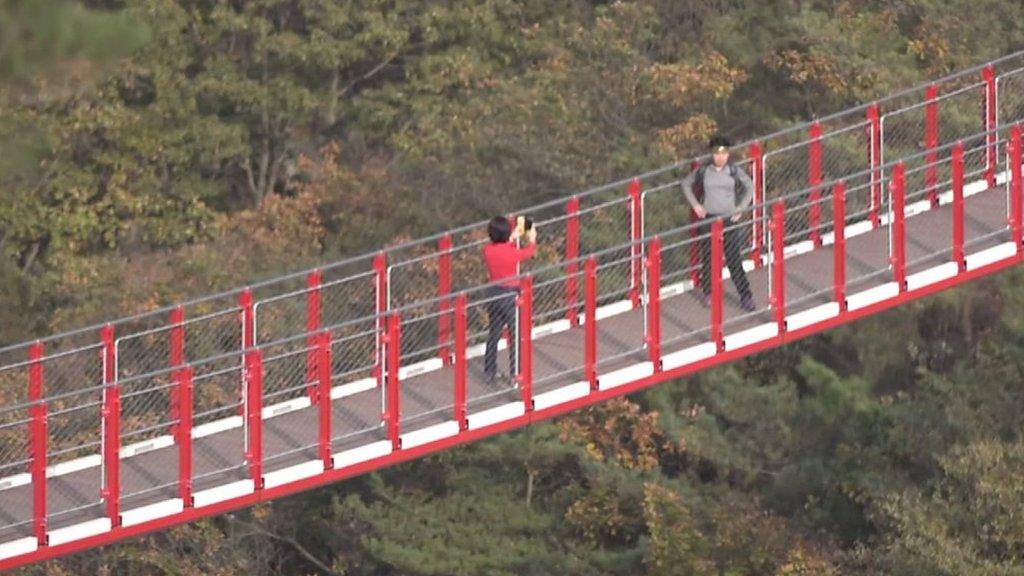Missing Imjin soldiers honoured at Korea burial
- Published
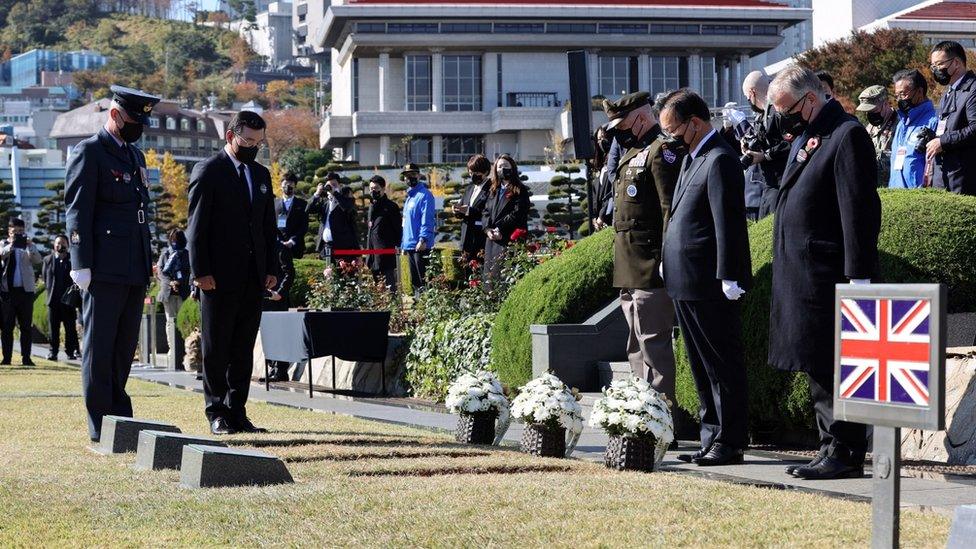
The remains of the unknown soldiers were interred in a ceremony attended by the South Korean Prime Minister
The remains of three British soldiers found close to where the Battle of Imjin River was fought in 1951 have been buried with full military honours.
It is believed the men, who were laid to rest at a ceremony in South Korea on Remembrance Day, could have served with the "Glorious Glosters".
The Gloucestershire based Regiment played a crucial part in the battle.
A team are tracing family members of missing "glosters" to match their DNA samples with the remains.
The service took place at the United Nations Cemetery in Busan, Korea, where all the other Korean War casualties from the Gloucestershire Regiment are buried.
DNA already analysed from the remains proves they are from the west but a match with a relative would prove it beyond doubt.
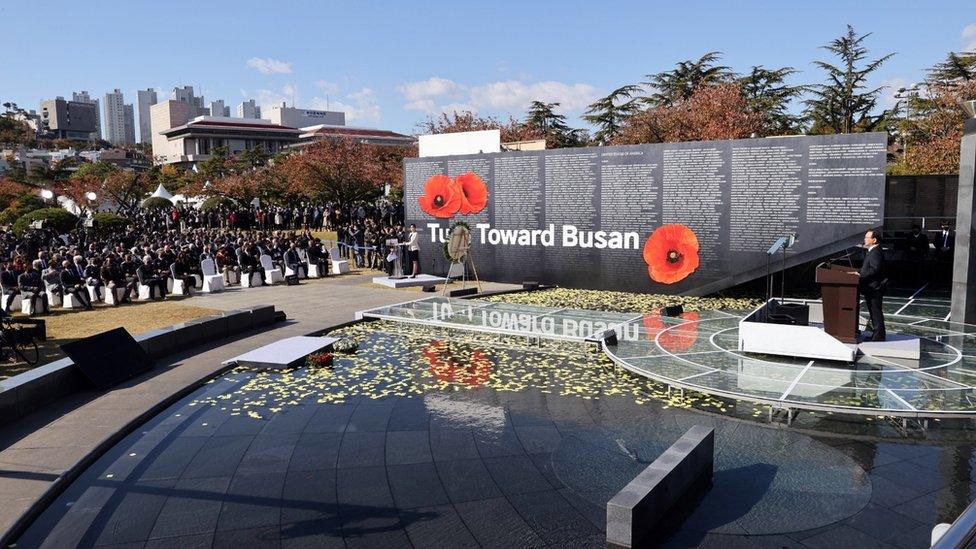
The service took place at the main United Nations Cemetery in Busan, Korea,
Nicola Nash, from the joint casualty and compassionate centre, who is doing the research into the remains, said: "Due to the location of where the remains were found it's been suggested that they could be [the] Gloucestershire regiment so that's the point that I started looking at all the Gloucestershire regiment men that had been listed as missing".
So far they have collected 35 DNA samples, which have all been analysed, but none have been a match.
For Tommy Cloigh, a veteran of the famous battle, putting a name to a grave is important.
"It's good to know they've been found and let's hope they find many more and prove who they are through DNA testing.
"It would be a great relief to their relatives to have them laid to rest", said Mr Cloigh.
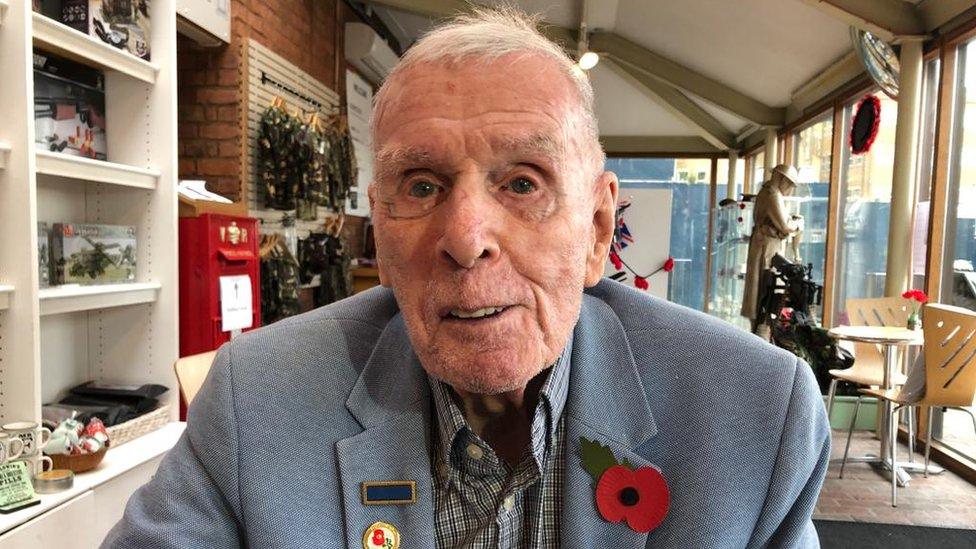
Tommy Clough is a veteran of the Battle of Imjin River and was taken as a prisoner of war after the battle.
Around 15 families are still being traced by the team for DNA samples. The hope is to match up names on the Imjin roll of honour to the graves of those buried.
The Gloucestershire Regiment was crucial in holding out for three nights against overwhelming odds in a defensive position behind the Imjin River, preventing the encirclement of UN forces, and earning them the nickname The "Glorious Glosters".
Related topics
- Published21 April 2021

- Published28 January 2021
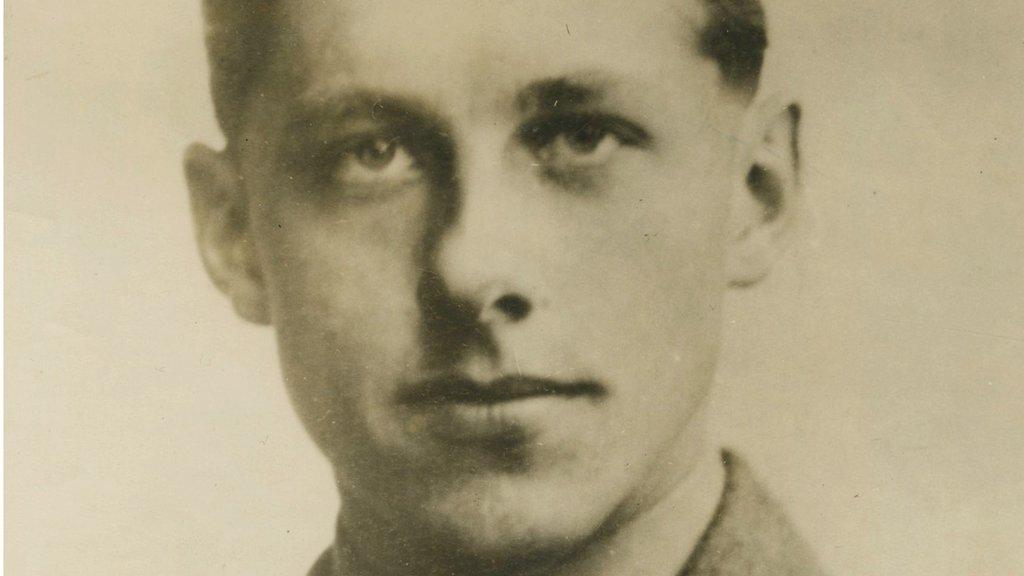
- Published22 October 2016
